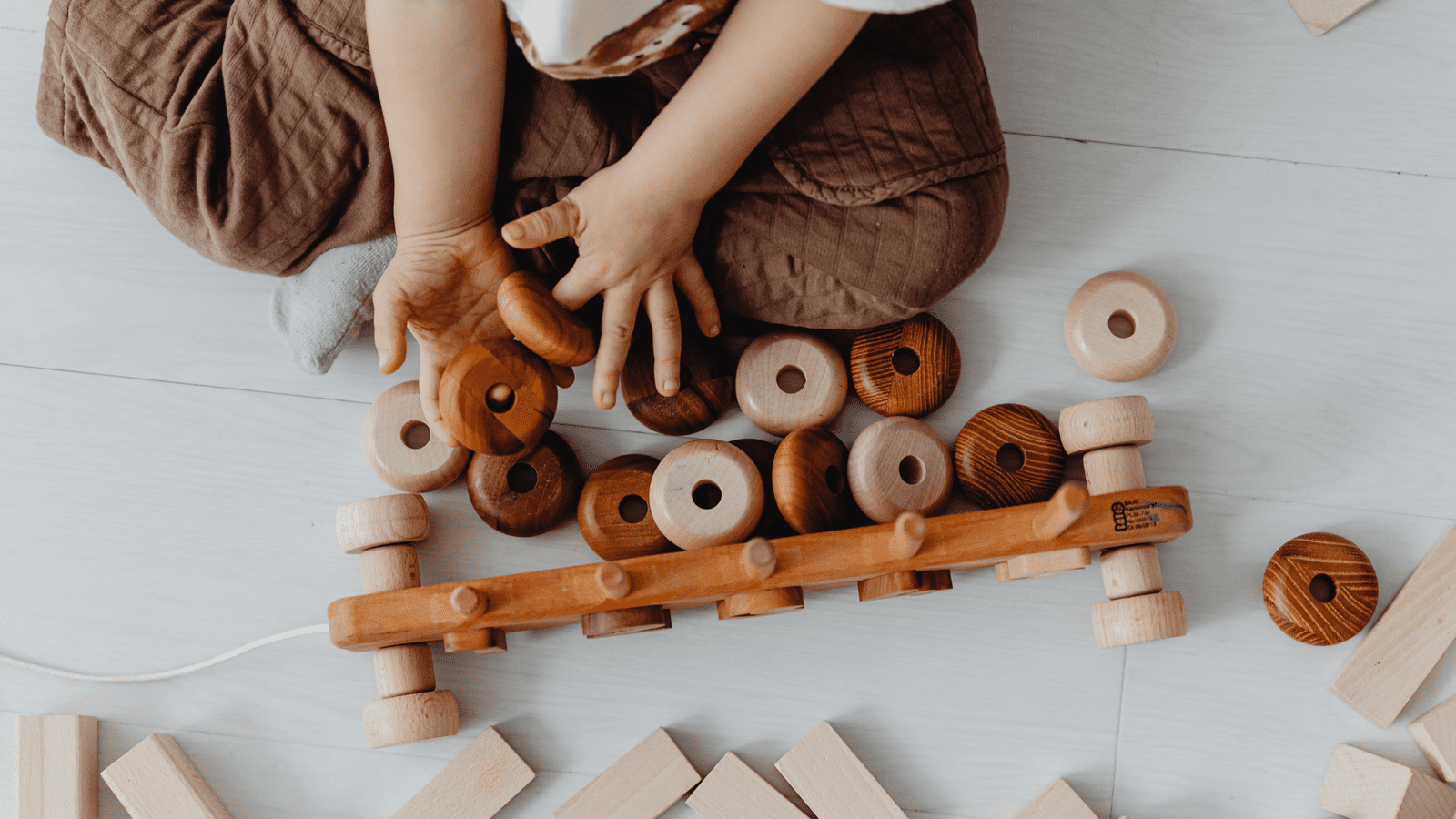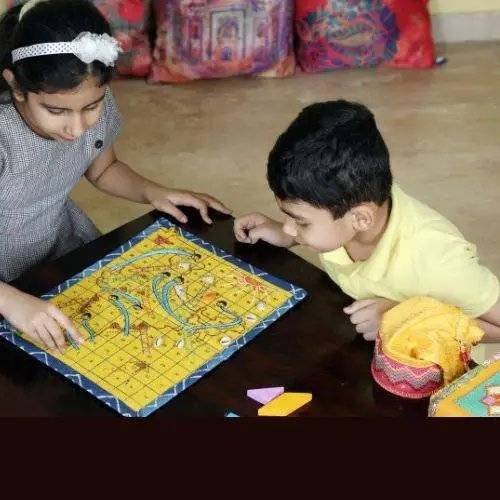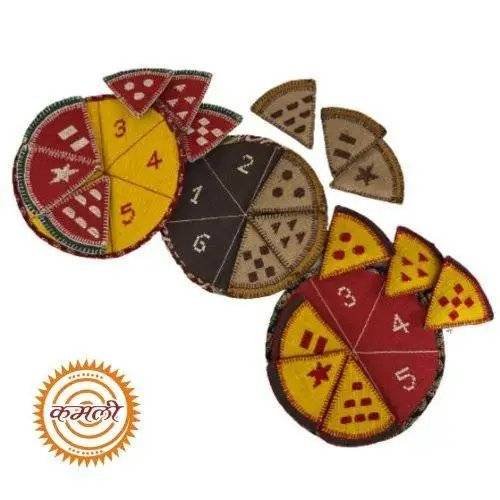Why Wooden Toys Are Better For Your Children?

In an age dominated by plastic and electronic gadgets, wooden toys are experiencing a resurgence. These classic playthings, once overshadowed by their more modern counterparts, are now being recognized for their numerous advantages. Parents today are not only looking for toys that entertain but also those that contribute positively to their children's development and well-being. Wooden toys offer a blend of simplicity and educational value that is hard to match.
Unlike plastic toys, which can often be noisy, flashy, and overwhelming, wooden toys provide a calm and engaging play experience. They are crafted from natural materials, making them safer for young children who are prone to putting things in their mouths. The tactile quality of wood, with its varied textures and weights, adds a sensory dimension to play that is absent in many synthetic toys. Furthermore, the durability of wooden toys ensures they can withstand the rough and tumble of playtime, often becoming cherished heirlooms passed down through generations.
In this blog, we will explore the reasons why wooden toys are a superior choice for your children. From safety and sustainability to fostering creativity and fine motor skills, wooden toys offer a holistic approach to play that benefits both children and the planet.
Safety First: Non-Toxic and Durable
Safety is a paramount concern for parents when choosing toys for their children. Wooden toys stand out as a safer alternative to plastic toys, primarily because they are made from natural, non-toxic materials. Many plastic toys contain harmful chemicals such as phthalates, BPA, and PVC, which can pose significant health risks if ingested or chewed on by young children. In contrast, wooden toys are often crafted from solid wood or high-quality plywood and are finished with non-toxic paints and sealants, ensuring that they are safe for even the most curious mouths.
The durability of wooden toys is another crucial safety aspect. Unlike plastic toys, which can easily break into small, sharp pieces, wooden toys are robust and designed to withstand rough handling. This resilience not only makes them a safer option but also means they can be used for many years without losing their functionality or aesthetic appeal.
The weight and sturdiness of wooden toys provide a different tactile experience, helping children develop their motor skills and spatial awareness. The absence of small parts and the solid construction minimize choking hazards, making wooden toys a reliable and safe choice for children of all ages. In choosing wooden toys, parents can have peace of mind knowing they are providing their children with safe, durable, and non-toxic play options.
Encouraging Imaginative Play
One of the standout benefits of wooden toys is their ability to foster imaginative play. Unlike many modern toys, which often come with predetermined functions, sounds, and lights, wooden toys are typically simpler in design. This simplicity encourages children to use their creativity and imagination to bring the toys to life. A wooden block can become a building, a vehicle, or a character in a story, allowing for endless possibilities and scenarios.
Imaginative play is crucial for a child's cognitive and social development. It helps children develop problem-solving skills, understand the world around them, and learn to express themselves. When children engage in imaginative play with wooden toys, they create their narratives and rules, which can lead to a deeper understanding of concepts and ideas. For instance, building a wooden fort can teach children about balance, gravity, and spatial relationships in a fun and engaging way.
Moreover, wooden toys often require children to engage in more interactive and hands-on play. Without the distraction of flashing lights and electronic sounds, children focus more on manipulating the toys and thinking creatively about how to use them. This type of play not only enhances imagination but also promotes fine motor skills and hand-eye coordination. By choosing wooden toys, parents provide their children with tools that nurture their creativity and help them explore their world in imaginative and meaningful ways.
Enhancing Fine Motor Skills
Wooden toys play a pivotal role in enhancing children's fine motor skills. Fine motor skills involve the coordination of small muscles, particularly in the hands and fingers, to perform precise movements. These skills are essential for daily activities such as writing, buttoning clothes, and tying shoelaces. Wooden toys, with their varied shapes, sizes, and textures, provide the perfect tools for developing these crucial abilities.
When children engage with wooden toys, they often have to grasp, lift, stack, and manipulate objects of different weights and dimensions. For instance, building blocks, puzzles, and stacking rings require precise hand-eye coordination and control. As children practice these activities, they develop stronger hand muscles and improved dexterity. The tactile experience of wooden toys, with their natural textures and resistance, offers sensory feedback that is beneficial for developing these skills.
Moreover, wooden toys often involve activities that require children to use both hands simultaneously, such as threading beads or assembling a wooden train set. This bilateral coordination is important for developing the ability to use both sides of the body together, which is essential for many tasks.
In addition to physical benefits, enhancing fine motor skills through wooden toys can boost children's confidence and independence. Mastering new tasks and seeing their creations come to life can be incredibly rewarding, encouraging further exploration and learning. By incorporating wooden toys into playtime, parents can support their children's fine motor development in a fun, engaging, and effective way.
Environmentally Friendly Choice
Opting for wooden toys is a conscious decision that benefits the environment. Unlike plastic toys, which are often derived from non-renewable petroleum and contribute to pollution, wooden toys are typically made from sustainable and renewable resources. Many manufacturers source wood from responsibly managed forests, ensuring that the materials used do not deplete natural ecosystems.
Wooden toys are also biodegradable, meaning they will break down naturally over time without leaving harmful residues. This contrasts sharply with plastic toys, which can take hundreds of years to decompose, contributing to the growing problem of landfill waste. Additionally, wooden toys require less energy to produce and are often made using eco-friendly processes, further reducing their environmental footprint.
The durability of wooden toys means they have a longer lifespan compared to plastic alternatives. They are less likely to break and can be repaired more easily, reducing the need for frequent replacements. This longevity not only makes wooden toys a cost-effective choice but also minimizes the resources needed for constant production and disposal.
Furthermore, the production of wooden toys often supports local artisans and communities, promoting sustainable economic practices. By choosing wooden toys, parents can play a part in fostering a greener, more sustainable world for their children, ensuring that the toys they play with today do not harm the planet they will inherit tomorrow.
Promoting Long-Term Play and Learning
Wooden toys are renowned for their ability to promote long-term play and learning, making them an invaluable addition to any child's toy collection. Unlike many contemporary toys that are quickly outgrown or lose their appeal, wooden toys are designed with timelessness in mind. Their simplicity and versatility allow children to engage with them in various ways as they grow, encouraging continuous exploration and learning.
The open-ended nature of wooden toys fosters creativity and problem-solving skills. A set of wooden blocks, for example, can be transformed into anything from a towering castle to a simple bridge, depending on the child's imagination. This kind of play stimulates cognitive development, as children learn to plan, build, and adapt their creations. Wooden puzzles and shape sorters, on the other hand, challenge children to think critically and develop spatial awareness, enhancing their intellectual growth.
Moreover, wooden toys are built to last. Their durability ensures they can be passed down from one generation to the next, maintaining their educational value over time. This longevity not only makes them a sustainable choice but also provides children with a sense of continuity and tradition. They learn to appreciate and care for their belongings, understanding the value of quality over quantity.
By choosing wooden toys, parents invest in tools that support their children's long-term developmental journey, promoting enduring learning experiences and cherished memories.
Supporting Ethical Manufacturing
When parents choose wooden toys for their children, they are often supporting ethical manufacturing practices. Unlike mass-produced plastic toys, which may be manufactured under questionable labor conditions and environmental standards, many wooden toy makers prioritize ethical principles throughout their production processes.
Ethical manufacturing of wooden toys typically involves fair wages and safe working conditions for artisans and workers involved in crafting these toys. Manufacturers often partner with local artisans or small-scale workshops, empowering communities and preserving traditional craftsmanship. This direct collaboration ensures that the people behind the toys are treated with dignity and respect, contributing to sustainable economic development.
Furthermore, many wooden toy manufacturers prioritize environmental sustainability. They often source wood from responsibly managed forests or use reclaimed wood, reducing their impact on natural ecosystems. Eco-friendly practices, such as using non-toxic paints and finishes, also contribute to safer products for children and a healthier environment.
By choosing wooden toys, parents can make a conscious decision to support companies that uphold ethical standards. They can feel confident knowing that their purchase not only provides their children with safe and high-quality toys but also contributes positively to the livelihoods of artisans and the sustainability of our planet.
Takeaway
Choosing wooden toys for your children offers a multitude of benefits that extend far beyond playtime. From safety and durability to fostering creativity and supporting ethical manufacturing practices, wooden toys stand out as a superior choice. They provide a safe and natural alternative to plastic toys, encouraging imaginative play and enhancing fine motor skills. Additionally, wooden toys promote environmental sustainability by using renewable resources and biodegradable materials.
Explore the unique charm of Rajasthani Haat, where you can discover a diverse range of handcrafted wooden toys that embody the rich cultural heritage of Rajasthan. Each purchase not only enriches your child's play experience but also supports local artisans and sustainable practices. Embrace the educational value and timeless appeal of Rajasthani Haat's wooden toys, knowing that your choice promotes ethical manufacturing and contributes to a brighter future for both your children and artisan communities in Rajasthan.


